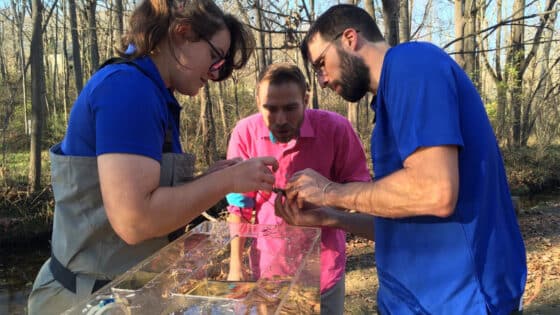Granco, G., M. Caldas, J. Bergtold, J.L. Heier Stamm, M. Mather, M. Sanderson, M. Daniels, A. Sheshukov, D. Haukos,and S. Ramsey. 2022. Journal of Environmental Management 301: 113776.
https://doi.org/10.1016/j.jenvman.2021.113776
Abstract
Agricultural landscapes are the leading edge in the advancement of sustainability and climate change adaptation. The purpose of this study is to endogenize culture as shaped by natural-cultural feedback into individuals’ decision-making processes on sustainability policy support. We present an agent-based model in which an adaptive cultural decision-rule quantifies the probability of an agent deciding to support a wildlife area policy for the Smoky Hill River Watershed (SHRW) in Kansas, USA. By using an ABM to examine the watershed as a coupled natural and human system, we learned that agents would adopt a new behavior, voting for the policy, if the cultural conditions were right, with high levels of beliefs and norms for fresh water and its biota. Our results indicate that individuals in the SHRW are not engaged in caring for fish, plants, and bird richness in their rivers and playas with few individuals supporting the policy in the naïve cultural setting (8.9% of simulated population). However, enough agents would support the policy under a lower cultural threshold (40.7% of simulated population). Our results show that sustainability policies need to account for the local culture to gain support, and if a policy is culturally meaningful, it does not need to be cheap. For an agricultural landscape, such as those commonly found in the Central Great Plains, this study presents new levers for policymakers on the conditions needed to help assemble popular support for sustainability policies.



